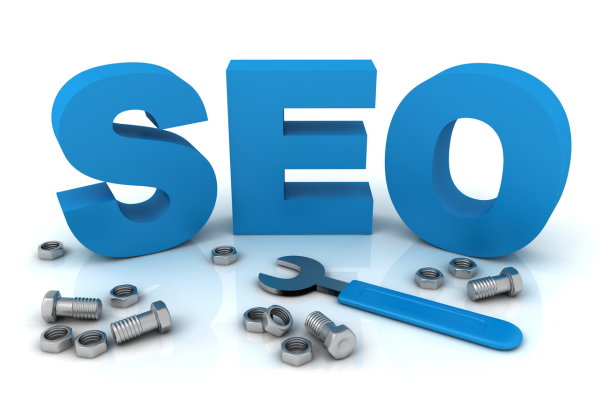Optimizing your Shopify store for SEO is one of the most powerful ways to attract high-intent organic traffic and boost conversions without relying solely on paid ads. By implementing a robust SEO strategy tailored specifically for Shopify, we can elevate visibility, outperform competitors, and convert browsers into loyal customers.
Understanding Shopify SEO: The Foundation of Sustainable Growth
Shopify SEO focuses on optimizing both on-page and technical elements within your Shopify store to improve search engine rankings. Unlike general SEO, Shopify optimization requires attention to unique platform features such as dynamic URLs, product tagging, structured data, and app integration. A well-optimized Shopify store creates a seamless experience for both users and search engines driving sustained organic performance.
Key Components of Shopify SEO:
- Optimized product and category pages
- Clean site architecture and URL structure
- Fast-loading mobile-friendly design
- SEO-friendly product descriptions and meta data
- High-quality backlinks and authority signals
- Technical SEO fixes (schema markup, canonical tags, redirects)
1. Keyword Research: Aligning Intent With Opportunity
Effective Shopify SEO begins with strategic keyword research. Identify transactional and commercial intent keywords that align with your audience’s purchase journey. Targeting these keywords ensures that your products appear when users are ready to buy.
Steps to Execute Keyword Research:
- Use tools like Ahrefs, SEMrush, or Google Keyword Planner to uncover profitable terms.
- Prioritize long-tail keywords (e.g., “organic skincare for dry skin” rather than just “skincare”).
- Map keywords to specific product and collection pages.
- Analyze competitors’ top-performing keywords and replicate winning strategies.
By integrating these terms naturally within product titles, URLs, and descriptions, we enhance both relevance and visibility.
2. On-Page Optimization for Shopify Stores
Shopify’s structure allows for deep customization. Proper on-page optimization ensures that each product and category page performs at its full potential.
Best Practices:
- Title Tags & Meta Descriptions: Include the primary keyword (e.g., Shopify SEO services) while maintaining click-worthy phrasing.
- Header Tags (H1, H2, H3): Organize content hierarchically to help Google understand your page structure.
- Image Optimization: Compress images and add descriptive alt text with relevant keywords.
- Internal Linking: Link related collections and blog posts to pass link equity and keep users engaged longer.
A clean on-page SEO setup strengthens topical relevance and user experience simultaneously.
3. Site Architecture: Building a Scalable SEO Framework
Shopify’s architecture should be intuitive for users and crawlable for search engines. A flat structure ensures every page is accessible within three clicks from the homepage.
Tips for Effective Site Structure:
- Use logical, keyword-rich URLs (e.g., /collections/organic-skin-care).
- Avoid duplicate content through proper canonicalization.
- Maintain consistent breadcrumb navigation.
- Organize collections by themes, not just product types, to support SEO-friendly clustering.
A strong architecture enhances crawl efficiency and keyword distribution across the site.
4. Technical SEO: Optimizing Shopify’s Core Performance
Technical SEO is the backbone of Shopify SEO. Google rewards sites that are fast, secure, and well-structured.
Key Technical SEO Enhancements:
- Page Speed Optimization: Compress images, use lazy loading, and leverage Shopify’s CDN.
- Mobile Responsiveness: Ensure mobile-first indexing by testing with Google’s Mobile-Friendly Test.
- Structured Data (Schema Markup): Implement product schema for reviews, ratings, and pricing to increase CTR with rich snippets.
- SSL Certificate: Secure your domain to build trust and meet Google’s HTTPS requirements.
- XML Sitemap and Robots.txt: Submit updated sitemaps to Google Search Console for better indexing.
A technically sound site minimizes crawl errors and maximizes organic exposure.
5. Content Marketing: Fueling Organic Visibility
High-quality content plays a pivotal role in Shopify SEO. Publishing blog posts, guides, and buyer-focused content helps attract and nurture organic leads.
Content Strategies That Drive Results:
- Create blog content targeting long-tail informational keywords (e.g., “how to choose vegan skincare”).
- Write detailed product descriptions that answer customer questions and highlight benefits.
- Incorporate user-generated content like reviews to enhance credibility and keyword diversity.
- Use Shopify blog to share brand stories, tutorials, and trends that naturally integrate keywords.
Consistent, value-driven content positions your Shopify store as an authority in your niche.
6. Link Building and Authority Growth
Earning backlinks from reputable websites boosts your Shopify store’s domain authority, which directly impacts rankings.
Proven Link Building Techniques:
- Guest post on niche-relevant blogs.
- Partner with influencers and product reviewers.
- Get featured in roundups and industry directories.
- Offer testimonials to complementary businesses.
Quality backlinks signal trustworthiness and elevate your search performance across all pages.
7. Leveraging SEO Services for Shopify Success
While Shopify provides user-friendly tools, professional SEO services can unlock its full potential. SEO experts conduct in-depth audits, competitor analysis, and continuous optimization ensuring your store adapts to ever-evolving algorithms.
Benefits of Partnering With SEO Professionals:
- Access to advanced analytics and keyword tracking.
- Ongoing technical maintenance and backlink acquisition.
- Tailored content strategies that match business goals.
- Faster results with data-driven implementation.
Collaborating with specialized Shopify SEO service providers accelerates sustainable organic growth and maximizes conversions.
8. Measuring and Refining SEO Performance
Tracking SEO performance ensures continuous improvement. Regularly evaluate metrics that reveal how your store performs in search results.
Essential KPIs:
- Organic traffic volume
- Conversion rates from organic search
- Keyword ranking movements
- Bounce rate and time-on-page metrics
- Backlink growth and domain authority
By reviewing analytics in Google Search Console and Google Analytics, we refine strategies for long-term success.
Conclusion: Transform Your Shopify Store Into an SEO Powerhouse
Investing in Shopify SEO is more than a traffic tactic, it’s a growth engine for your eCommerce brand. By combining robust on-page optimization, technical precision, high-quality content, and expert SEO services, your store can secure higher rankings, attract qualified visitors, and convert them efficiently.
A well-structured, SEO-optimized Shopify store not only enhances visibility but also establishes trust and authority in your niche paving the way for sustainable, organic revenue growth.
 :
https://xoomplus.co.uk/
:
https://xoomplus.co.uk/

